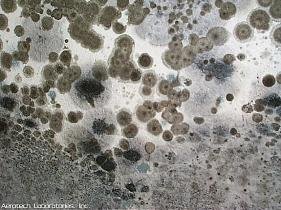Finally fix that mould problem for good
(NC) Spring cleaning often means checking your home for common problems like mould. More than just a nuisance, mould can grow in damp or wet areas that result from everyday activities like cooking or showering, and can cause health concerns. If you're trying to prevent or deal with mould, check out this handy guide for great tips and advice.
Understand the health risks. Mould can contribute to poor indoor air quality and health problems, including eye, nose, and throat irritation; coughing and mucous build-up; wheezing and shortness of breath; worsening of asthma symptoms; and other allergic reactions.
How to detect it. Mould can hide inside walls or above ceiling tiles and grow on wood, paper, fabrics, drywall and insulation. Inspect your home for visible signs of mould or areas with too much moisture. Look for dampness, stains or discolouration on floors, walls, window panes, fabrics, and carpets. Notice if you smell a musty, “earthy†odour.
Prevent it. Look for damp spots and repair water leaks as soon as you notice them. Use exhaust fans when cooking or showering and let them run for a few minutes after you're done. Make sure your clothes dryer, stove, kitchen and bathroom fans all vent to the outdoors. Seal tubs and sinks, throw out basement clutter and regularly clean and disinfect anything that holds water.
Work on your environment. Keep your home well-ventilated by opening windows in dry weather or using fans as needed. Reduce humidity — ideal levels are about 50% in summer and 30% in colder weather. You can also use a dehumidifier or air conditioner.
DIY a solution. You can generally clean small and moderate areas of mould by yourself. Wear safety glasses or goggles, a disposable dust mask and rubber gloves. Isolate the area by taping plastic sheeting to the walls and ceiling to prevent the spread of dust and mould particles. Clean the mould by using water and dish detergent (there's no need to use bleach), and vacuum the area with a HEPA vacuum cleaner before and after cleaning. When cleaning mould, people with asthma, allergies or other sensitivities to mould should not be in the home.
When to call in a pro. Consider hiring a professional if there's a large amount, or if the mould keeps coming back after you clean it. If you rent your home, speak to your landlord about any mould problems. Landlord's and tenant's rights and obligations fall under provincial and territorial jurisdiction, so check with your local government for more information.
You can find more information online at Canada.ca/health.
www.newscanada.com
Comments
There are 0 comments on this post





